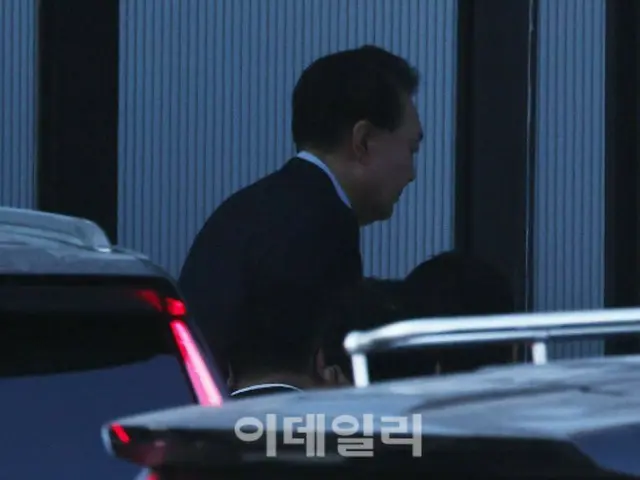The government arrested Yoon on the 15th. This is the first time in South Korea's constitutional history that a sitting president has been arrested. Yoon declared emergency martial law late at night on the 3rd of last month. Emergency martial law is a form of martial law as defined by the South Korean Constitution.
A type of order issued by the president in times of war or other emergency situations, when military necessity arises or to maintain public order. The military takes control of administrative and judicial functions, and freedom of speech, publication, and association is restricted.
It was the first time that martial law had been declared since democratization in 1987. Armed martial law soldiers broke the windows and stormed into the National Assembly building.
In response to this situation, many citizens gathered in front of the National Diet building, chanting slogans against martial law and surrounding military vehicles, causing chaos.
However, if a majority of members of Congress request the lifting of martial law, the president must comply.
A plenary session was held in the National Assembly, and all the members present voted in favor of lifting the state of emergency. Yoon lifted it in just six hours. However, the declaration of state of emergency caused great political and social unrest, and the opposition parties were skeptical of Yoon.
The Korean penal code, Article 87, stipulates that if a riot is started with the intent of eliminating state power or violating the national constitution, it is punishable as a crime of treason. The maximum penalty is the death penalty.
Article 84 of the law stipulates that "The President shall not be liable to criminal prosecution while in office, except for cases of insurrection or foreign treason." Although the incumbent president enjoys immunity from arrest, the crime of insurrection is an exception.
Therefore, it is possible to arrest and indict Yoon. Until now, the joint investigation headquarters consisting of the Public Prosecutor's Office and other agencies has been conducting the investigation. On the 3rd of this month, the joint investigation headquarters held a press conference to execute the arrest warrant for Yoon.
However, the Presidential Security Service blocked their entry in front of the building, and after a standoff that lasted more than five hours, the investigation headquarters eventually decided to abandon the execution that day due to safety concerns.
In an attempt to execute the arrest warrant for the president, investigators from the Joint Investigation Headquarters entered the grounds of the presidential residence early on the morning of the 15th. It is said that about 5,000 investigators and riot police were deployed to the residence.
The Public Prosecutor's Office executed an arrest warrant for Yoon at 10:33 a.m. on the same day. Prior to his arrest, both Yoon's supporters and those in favor of Yoon's arrest gathered in front of the presidential residence.
The supporters shouted, "We will protect the president," while those hoping for Yoon's arrest erupted in joy when the news of his arrest reached them.
Before his arrest, Yoon also released a video message.
The laws of this country have all collapsed. Procedures are being carried out with coercion through invalid arrest warrants issued by courts with no jurisdiction over cases during periods when they have no jurisdiction over investigations. This is truly deplorable.
"In order to prevent bloodshed, I have decided to comply with the Public Prosecutor's Office's request to appear, even though it is an illegal investigation," he said. Shortly after 10:30 a.m., a car believed to be carrying Yoon passed in front of the main gate of the official residence.
depart. About 20 minutes later, we arrived at the Public Prosecutor's Office. Yoon's interrogation began immediately at the office, and was conducted by the Public Prosecutor's Office's number two, Deputy Director Lee Jae-seong. South Korean news agency Yonhap News reported, "The current
Considering the seriousness of the case involving the president, the deputy director is believed to have personally conducted the interrogation." The Public Prosecutors' Office prepared a questionnaire of over 200 pages for Yoon's interrogation. However,
He is said to be refusing to make statements during questioning. In addition, although there is recording equipment in the interrogation room, Yoon has also refused to be recorded, so it is not being done.
Under the Criminal Procedure Law, once a warrant is served, the person must either request an arrest warrant or be released within 48 hours.
The decision on whether to issue a warrant will be made after a "warrant review" in which the opinions of both the prosecution and Yoon's side are heard.
2025/01/16 11:23 KST
Copyrights(C)wowkorea.jp 5

